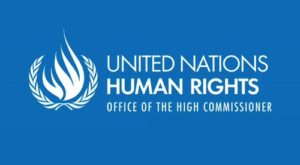 The United Nations High Commission on Human Rights (UNOCHCR) continues its investigation into police brutality, violence and abuse. After its session at the UN Headquarters in New York in November 2015, in which testimony was presented from, among other witnesses, reporters and experts, Samaria Rice (mother of Tamir Rice), John Crawford II (father of John Crawford III), Alicia Garza (co-founder of Black Lives Matter) and several UN Special Rapporteurs from different parts of the world, the United Nations’ (UN) Economic and Social Council (ECOSOC) determined the need to continue to monitor the ongoing crisis of police brutality, violence and abuse directed specifically against Black People around the world. For more details of this session, see https://kuumbareport.com/2015/11/10/confronting-the-silence-introduction-to-the-un-session/; and https://kuumbareport.com/2015/12/01/confronting-the-silence-structural-racism-the-view-from-america/.
The United Nations High Commission on Human Rights (UNOCHCR) continues its investigation into police brutality, violence and abuse. After its session at the UN Headquarters in New York in November 2015, in which testimony was presented from, among other witnesses, reporters and experts, Samaria Rice (mother of Tamir Rice), John Crawford II (father of John Crawford III), Alicia Garza (co-founder of Black Lives Matter) and several UN Special Rapporteurs from different parts of the world, the United Nations’ (UN) Economic and Social Council (ECOSOC) determined the need to continue to monitor the ongoing crisis of police brutality, violence and abuse directed specifically against Black People around the world. For more details of this session, see https://kuumbareport.com/2015/11/10/confronting-the-silence-introduction-to-the-un-session/; and https://kuumbareport.com/2015/12/01/confronting-the-silence-structural-racism-the-view-from-america/.
While international bodies such as the United Nations may be seen (correctly) as excessively bureaucratic bodies and slow to respond to crises such as these in an expeditious or effective manner, the fact is that in many cases they do respond, even if not as quickly as we would like. The UNOHCHR has held periodic discussions and made regular reports on the issue of police brutality, violence and abuse, some of which we discuss below. After a June 2020 “urgent debate” and subsequent oral and written reports from the High Commissioner for Human Rights, former Chilean President Michelle Bachelet, a consultative discussion is being held on Thursday, February 18 featuring several civil society organizations, activists and experts from the Diaspora. We will share details on these efforts below.
The “Urgent Debate”
This comes from the UNOHCHR’s Web site (https://www.ohchr.org/EN/NewsEvents/Pages/DisplayNews.aspx?NewsID=25971&LangID=E):
Human Rights Council holds an urgent debate on current racially inspired human rights violations, systemic racism, police brutality and violence against peaceful protests
17 June 2020
Speakers Urge the Council to Establish an International Commission of Inquiry to Investigate Systemic Racism in Law Enforcement in the United States
The Human Right Council this afternoon began an urgent debate on current racially inspired human rights violations, systemic racism, police brutality and violence against peaceful protests. It heard calls from speakers for the Council to establish an international commission of inquiry to investigate systemic racism in law enforcement in the United States.
In her opening remarks, Elisabeth Tichy-Fisslberger, President of the Human Rights Council, said this urgent debate was being held at the request of Burkina Faso on behalf of the African Group. She bowed to all the victims and kindly requested those present to observe a moment of silence.
Amina Mohammed, United Nations Deputy Secretary-General, via video teleconference, said this was an urgent and necessary debate, given that Afro-descendants still faced poverty and structural racism, causing them to be, for instance, amongst the hardest hit communities by COVID-19.
Michelle Bachelet, United Nations High Commissioner for Human Rights, emphasized that the wave of protests since the killing of George Floyd had been truly global. She encouraged the Council to heighten its focus on racism and racial discrimination, going beyond existing recommendations, and reiterated that “Black lives matter”.
Kwesi Quartey, Deputy Chairperson of the African Union Commission, said the African Union rejected the continued racial discrimination against black citizens of the United States, urging the international community to ensure the total elimination of all forms of discrimination based on race, ethnicity or religion.
E. Tendayi Achiume, Special Rapporteur on racism, via video message, on behalf of other mandate holders, urged the Council to create an international commission of inquiry with the necessary authority to investigate systemic racism in law enforcement in the United States.
Philonise Floyd, brother of George Floyd, via video message, reiterated that none of the police officers were fired for his brother’s murder until mass protests took place worldwide, and requested the establishment of an independent commission of inquiry to investigate police killings of black people in America and the violence used against peaceful protesters.
In the discussion that followed, speakers thanked the African Group for putting this important topic on the agenda. For some of them, racist acts were not errors of the system in the United States, but rather functions of it, and racism was widespread in the administration of President Donald Trump. Other speakers stressed that racism was present everywhere and, consequently, no country should be singled out. Some endorsed the idea of creating an independent commission of inquiry, urging the Council to take action and not become a passive observer. Others expressed support for the United States’ recent steps to address racism, police brutality and violent responses to peaceful demonstrations, noting, for example, the charging of officers over George Floyd’s death, the removal of others responsible for excessive force, as well as moves towards police reform.
Speakers noted that the responsibility to protect human rights primarily rested with States. National policies should be revisited to better implement the Durban Declaration and Programme of Action, and governments should strengthen their dialogues with communities of people of African descent. Acknowledging their countries own histories of racism, some speakers chastised privileges based on race and said it was not enough for leaders to merely express their opposition to racism. “Black lives matter”, several speakers emphasized.
Speaking in the urgent debate were Central African Republic on behalf of the African Group, Indonesia on behalf of a group of countries, Azerbaijan on behalf of the Non-Aligned Movement, Croatia on behalf of the European Union, Mexico on behalf of a group of countries, Marshall Islands, India, Venezuela, Brazil, Pakistan, Republic of Korea, Uruguay, Netherlands, Armenia, Indonesia, Australia, Namibia, Nepal, Cameroon, Bahrain, Japan, Senegal, Nigeria, Fiji (video message), Bangladesh (video message), Spain, Togo, Ukraine, Germany, Austria, Denmark, Qatar, Somalia, Sudan, UN Women, Jordan, Sweden, Democratic People’s Republic of Korea, Cuba, Seychelles, Botswana, Sierra Leone, France, Belgium, Liechtenstein, South Africa, Philippines (video message), United Nations Population Fund (video message), Syria, Jamaica, Morocco, United Nations Children’s Fund, Iran, Egypt, Canada, Colombia, State of Palestine, Sri Lanka, Lesotho, Russian Federation, China and Switzerland.
The meetings of the forty-third regular session of the Human Rights Council can be followed on the webcast of UN Web TV.
The Council will next meet on Thursday, 18 June at 10 a.m. to conclude the urgent debate on current racially inspired human rights violations, systemic racism, police brutality and violence against peaceful protests. It will then continue the interactive dialogue with the Independent Expert on the human rights situation in Mali.
Statement by the President of the Human Rights Council
ELISABETH TICHY-FISSLBERGER, President of the Human Rights Council, recalled that on Friday, 12 June 2020, she had received a letter from Burkina Faso on behalf of the African Group containing the formal request to hold this urgent debate on “the current racially inspired human rights violations, systemic racism, police brutality against people of African descent and violence against peaceful protests”. She said she bowed to all the victims and asked those present to observe a moment of silence.
Key-note Statements
AMINA MOHAMMED, United Nations Deputy Secretary-General, speaking via video teleconference, said this was an urgent and necessary debate. United Nations Secretary-General Antonio Guterres shared the Council’s abhorrence of racism. As stated in an op-ed that had recently been published by senior United Nations officials who were African or of African descent: “Not enough can ever be said about the deep trauma and inter-generational suffering that has resulted from the racial injustice perpetrated through centuries, particularly against people of African descent. To merely condemn expressions and acts of racism is not enough. We must go beyond and do more.” Noting that most recent protests against racism had been triggered by the appalling killing of George Floyd, she stressed that racism spanned history and borders across the globe. Today, people were saying enough. The United Nations had a duty to respond to the anguish that racism caused, as equal rights were enshrined in the Charter.
Ms. Mohammed recalled that the crimes and negative impact of the transatlantic slave trade were still being felt today: Afro-descendants still faced poverty and structural racism, causing them to be, for instance, amongst the hardest hit communities by COVID-19. As all recovered from the pandemic, returning to these systems was absolutely out of the question. Calling for a reset of law enforcement, Ms. Mohammed emphasized that the poison of racism still raged and the fight against it must still be waged. The world must fight racism in all its obnoxious forms. On a personal note, she added that she, like Martin Luther King Jr. had a dream that her granddaughter may live in a world where she was not judged by the colour of her skin but rather on the strength of her character. The United Nations, its leadership and staff, stood with all those who were pursuing the scourge of racism in all its forms.
MICHELLE BACHELET, United Nations High Commissioner for Human Rights, emphasized that the wave of protests since the killing of George Floyd had been truly global. The brutal act had come to symbolise systemic racism and the excessive use of disproportionate force by law enforcement that harmed millions of people of African descent, people of colour, indigenous peoples and racial and ethnic minorities across the globe. Given the transcending public support for a sea change, 20 fellow United Nations leaders of African origin or descent had written this week that the world needed to go beyond merely condemning racism. Decisive action was required to reform institutions and address pervasive racism that corroded them. Ms. Bachelet was heartened to see national and local measures in this regard, such as banning of the use of chokeholds, tear gas, rubber bullets and flash grenades by police forces. Behind today’s racial violence, systemic racism, and discriminatory policing lay the failure to acknowledge and confront the legacy of the slave trade and colonialism. To build a more solid foundation for equality the world needed to better understand the scope of systemic discrimination, with disaggregated data by ethnicity or race. It was also necessary to make amends for centuries of violence and discrimination, including through formal apologies, truth-telling processes, and reparations in various forms. Time was of the essence. Patience had run out. Black lives mattered. Indigenous lives mattered. The lives of people of colour mattered. All human beings were born equal in dignity and rights: that was what this Council, like her Office, stood for.
KWESI QUARTEY, Deputy Chairperson of the African Union Commission, welcomed the debate on the important and worrying issue of racial discrimination and human rights. The African Union rejected the continued racial discrimination against black citizens of the United States. This systemic discrimination could only be eradicated if the issues were examined from the roots. This was an opportunity for the international community to do so, and that required considering the transatlantic slave trade and its consequences. Yet images of a black man in London providing assistance to a far-right protester reminded that all were part of the same humanity. Racism, racial discrimination and xenophobia must not be allowed to erase all the achievements and development that humanity had reached. The African Union urged the international community to ensure the total elimination of all forms of discrimination based on race, ethnic or religious origin.
E. TENDAYI ACHIUME, Special Rapporteur on racism, racial discrimination, xenophobia and related forms of intolerance, speaking via video message, delivered a joint statement of behalf of the Special Rapporteur on contemporary forms of racism, racial discrimination, xenophobia and related intolerance; the Working Group of Experts on people of African descent ; the Special Rapporteur on the rights of freedom of assembly and association ; and the Coordination Committee of the Special Procedures of the Human Rights Council.
In the United States, there could be no question that the problem was not one of isolated incidents of police misconduct, but rather it was one of systemic racism in law enforcement. Furthermore, it was a situation that required urgent and decisive action by the Human Rights Council. Nevertheless, the predominant messages from the President of the United States and his administration had been to deny the existence of systemic racism in law enforcement. Instead, he had inflamed national tensions through racialized divisive rhetoric and called on public authorities to deploy force against protestors. The response of the United States’ Government to the national uprising against systemic racism in law enforcement had re-enacted the very injustices that had driven people into the streets in the first place. Any resolution adopted by the Council at the conclusion of this debate must provide for an international commission of inquiry with the necessary authority to investigate systemic racism in law enforcement in the United States. Failure to establish an international commission of inquiry would signal that black lives do not matter, or that if they do, they do not matter enough to mobilize the Human Rights Council to intervene where it should.
PHILONISE FLOYD, brother of George Floyd, speaking via video message, emphasized that his brother was unarmed when he was killed after being accused of passing a counterfeit $ 20 bill. The Floyd family had had to watch the last moments of his life, as they were captured on camera. Witnesses had begged the officer to take his knee off George Floyd’s neck to save his life for four minutes after he stopped breathing. None of the police officers were fired for this murder until mass protests took place worldwide, highlighting the same lesson yet again: black lives do not matter in the United States. The police had used violence against people peacefully protesting for George Floyd, injuring and killing them by using tear gas, rubber bullets and running them over with police vehicles. The sad truth was that George Floyd’s case was not unique: it represented the way black people were treated by police in the United States. Mr. Floyd emphasized that instead of watching the death of George, they could have witnessed his own death. He concluded his statement by asking the United Nations to help get justice for George Floyd and help all black people in the United States. Specifically, Mr. Floyd requested the Council to establish an independent commission of inquiry to investigate police killings of black people in the United States and the violence used against peaceful protesters.
Urgent Debate
Speakers strongly condemned the murder of George Floyd that was not justified, and all forms of racism, xenophobia and discrimination. The Committee against Torture and the Committee on the Elimination of Racial Discrimination had made multiple recommendations over the years regarding the issues of police brutality and racism. Some of these recommendations went back to 2006 and were still relevant today. It was hoped that this debate would renew the commitment to put in place and implement the Durban Declaration and Programme of Action. Speakers strongly condemned racially motivated violence and hatred, as well as attacks on peaceful protests and murders committed by police forces. Police forces played an important role in societies, but complaints of police violence were still common and marginalised people and communities were still unfairly treated by justice systems. Laws and practices must be people-centred in order to combat these problems within police forces.
Speakers expressed concern about the increased use of the mass media to transmit racism, xenophobia and racist discrimination, calling for the promotion of education and mutual understanding between communities. Public policies aimed at fostering a domestic environment of tolerance, respect and peace must be strengthened. Speakers expressed deep concern over structural and systemic racism in all societies affecting minority groups the world over, emphasizing that States had the responsibility to prevent racist-driven crimes and ensure justice and accountability. It was time to unite in a firm, global and collective response.
Speakers thanked the African Group for putting this important topic on the agenda. For some of them, racism was an inherent element of imperialism; it was widespread in the administration of President Donald Trump. Other speakers stressed that racism was present everywhere and, consequently, no country should be singled out. Others expressed support for the United States’ recent steps to address racism, police brutality and violent responses to peaceful demonstrations, noting, for example, the charging of officers over George Floyd’s death, the removal of others responsible for excessive force, as well as moves towards police reform. Speakers stressed that people of African descent continued to face systemic discrimination in many countries. In that regard, the tragedy of the death of George Floyd was both a reminder and a wake-up call.
The challenge remained for nations to foster the necessary will to achieve what had been long promised to black people. The responsibility to protect human rights primarily rested with States. National policies should be revisited to better implement the Durban Declaration and Programme of Action, and governments should strengthen their dialogues with communities of people of African descent. Asian people had been subjected to racism in the context of COVID-19, some speakers pointed out. While some speakers stressed the need to ensure the enjoyment of the freedom of expression and related human rights, others emphasized the need for protesters to remain peaceful and refrain from destructing property. In addressing racism, it was paramount to ensure access to due process for all. Some called for a greater involvement of Special Procedure mandate holders. Acknowledging their countries’ own history of racism, some speakers chastised privileges based on race and said it was not enough for leaders to merely express their opposition to racism. “Black lives matter”, several speakers emphasized.
Girls and women of African descent were likely to be poorer and less educated amongst other forms of marginalization, all around the world. Racist acts constituted threats not only to individuals but also to societies and democracies. Speakers said that the timely response of the judiciary, including the latest ruling of the United States Supreme Court on the issue of non-discrimination, was yet another piece of evidence of democratic traditions and equality ideas being deeply rooted within the American society. Others said that racist acts were not errors of the system in the United States, but rather functions of it. The Human Rights Council must be the ultimate defender of the weak and do so particularly for the descendants and the victims of the transatlantic slave trade. All those present had a responsibility not to minimize the issue, not to generalize it and not to diminish it, because that would be a form of racism in itself.
Unequivocal support was reaffirmed for the International Decade for People of African Descent and related activities as designated by the United Nations. This initiative sought to guarantee the full and equal participation of Afro-descendants in all aspects of society; efforts should be redoubled towards its full realisation. Calling George Floyd’s killing an “execution,” some speakers said it reflected a long history of oppression, which dated back to the days of slavery, and was bringing the United States further from Martin Luther King Jr.’s ideal of a “beloved community”. Ascribing certain forms of racism to societal characteristics of “countries of the West,” speakers called for an end of the ideology of racial superiority.
Several speakers endorsed the idea of creating an independent commission of inquiry, urging the Council to take action and not become a passive observer. Some speakers expressed their sincere condolences to the family of George Floyd and deplored the use of social media platforms in inciting racial hatred. There were no easy fixes to racism, and building an equal society “begins with each of us”, speakers said. Racism and other forms of discrimination were still rampant and existed in all societies no matter how rich they were, others noted. No country was immune from the scourge of racism. Speakers urged the United States to take action to resolve the structural issues and economic inequality that had caused the recent events.
Citing race-related challenges they faced in their own countries, speakers said they remained conscious that the fight against racism was not won by words and proclamations alone, and called for all to look inwards to combat the legacies of slavery and colonialism that continued to haunt the world. The singular incident of the brutal death of George Floyd reflected a much wider, global problem of racism and racial discrimination. The Black Lives Matter-led protest movement had shaken the entire world. Quoting Malcom X, speakers said the matter at hand was not a “black problem” nor a “white problem”, but rather one that concerned all of humanity. Some speakers noted that Washington had ignored for decades the fair criticism of the international community and boycotted the work of the Human Rights Council. The confidence of the American administration in its messianic role as well as its impunity had led to the current tragedy.
The UN Human Rights Council Resolution
The UN then followed up with a Resolution, available at their Web site https://undocs.org/A/HRC/RES/43/1:
Human Rights Council, Forty-third session
24 February–13 March and 15–23 June 2020
Agenda item 1, Organizational and procedural matters
Resolution adopted by the Human Rights Council on 19 June 2020
43/1. Promotion and protection of the human rights and fundamental freedoms of Africans and of people of African descent against excessive use of force and other human rights violations by law enforcement officers
The Human Rights Council,
Reaffirming the purposes and principles of the Charter of the United Nations and the Universal Declaration of Human Rights, and promoting and encouraging respect for human rights and fundamental freedoms for all,
Recalling the Universal Declaration of Human Rights, which states that all human beings are born free and equal in dignity and rights, and that everyone is entitled to all the rights and freedoms set forth in the Declaration, without distinction of any kind, such as race, colour or national origin,
Recalling also the International Covenant on Civil and Political Rights and the
International Convention on the Elimination of All Forms of Racial Discrimination and the Convention against Torture and Other Cruel, Inhuman or Degrading Treatment or Punishment, and bearing in mind the Vienna Declaration and Programme of Action,
Recalling further its previous resolutions on the comprehensive follow-up to the World Conference against Racism, Racial Discrimination, Xenophobia and Related Intolerance and the effective implementation of the Durban Declaration and Programme of Action, and the International Decade for People of African Descent as proclaimed by the General Assembly in its resolution 68/237 of 23 December 2013,
Recalling the General Assembly resolutions in this regard, in particular Assembly resolution 74/137 of 18 December 2019, and the imperative need for their full and effective implementation,
Alarmed at the resurgence of violence, racial hatred, hate speech, hate crimes, neoNazism, neo-Fascism and violent nationalist ideologies based on racial or national prejudice, including the resurgence of racial superiority ideologies that incite hatred and violence against Africans and people of African descent,
Recognizing that racism, racial discrimination, xenophobia and related intolerance have a deep negative impact on the enjoyment of human rights, and therefore require a united and comprehensive response from the international community,
Recalling Human Rights Council resolution 7/34 of 28 March 2008, and all
subsequent resolutions on the mandate of the Special Rapporteur on contemporary forms of racism, racial discrimination, xenophobia and related intolerance, including those of the Commission on Human Rights,
Taking note of the historic resolution on racial discrimination in the United States of America adopted at the first ordinary session of the Assembly of African Heads of State and Government of the Organization of African Unity, held in Cairo from 17 to 24 July 1964, and the statement made by the Chairperson of the African Union Commission which condemned the murder of George Floyd in Minnesota, United States of America, on 25 May 2020,
Taking note also of the statement made by the Inter-American Commission on Human Rights on 8 June 2020 expressing its strong condemnation of the murder of George Floyd and repudiating structural racism, the systemic violence against Afro-Americans, impunity and the disproportionate use of force by law enforcement officers,
Recalling the Code of Conduct for Law Enforcement Officials and the Basic
Principles on the Use of Force and Firearms by Law Enforcement Officials,
Encouraging States to look into their manuals and guidelines used for training law enforcement officers with a view to identifying the proportionality of measures in the handling of suspects and other persons in custody, with respect to the treatment of Africans and people of African descent,
Reaffirming the importance of the Durban Declaration and Programme of Action in advancing racial equality, ensuring equal opportunities for all, guaranteeing equality before the law and promoting social, economic and political inclusion without distinctions based on race, age, sex, disability, descent, national or ethnic origin, religion or economic or other status,
Welcoming all statements made by the special procedures regarding the killing of George Floyd, and in particular their joint statement of 5 June 2020, and the statement made by the United Nations High Commissioner for Human Rights on 3 June 2020,
1. Strongly condemns the continuing racially discriminatory and violent practices perpetrated by law enforcement agencies against Africans and people of African descent, in particular which led to the death of George Floyd on 25 May 2020 in Minnesota, as referred to in the ninth preambular paragraph above, and the deaths of other people of African descent,
and also condemns the structural racism in the criminal justice system;
2. Deplores the recent incidents of excessive use of force and other human rights violations by law enforcement officers against peaceful demonstrators defending the rights of Africans and of people of African descent;
3. Requests the United Nations High Commissioner for Human Rights, with the
assistance of relevant special procedure mandate holders, to prepare a report on systemic racism, violations of international human rights law against Africans and people of African descent by law enforcement agencies, especially those incidents that resulted in the death of George Floyd and other Africans and people of African descent, to contribute to accountability and redress for victims;
4. Also requests the High Commissioner to examine government responses to
anti-racism peaceful protests, including the alleged use of excessive force against protesters, bystanders and journalists;
5. Calls upon all States and all relevant stakeholders to cooperate fully with the High Commissioner in the preparation of the report;
6. Requests the High Commissioner to provide an oral update on the preparation of her report to the Human Rights Council at its forty-fifth and forty-sixth sessions, and to present a comprehensive report to the Council at its forty-seventh session, to be followed by an interactive dialogue;
7. Also requests the High Commissioner to include updates on police brutality
against Africans and people of African descent in all her oral updates to the Human Rights Council;
8. Invites all treaty bodies, special procedure mandate holders and international and regional human rights mechanisms, within their respective mandates, to pay due attention to all forms of racism, racial discrimination, xenophobia and related intolerance, including against Africans and people of African descent, and to bring them to the attention of the Human Rights Council;
9. Decides to remain seized of the matter.
44th meeting
19 June 2020
[Adopted without a vote.]
Following Up on Resolution 43/1
This was part of the overall strategy of the Human Rights Council to make practical steps to follow up on these sessions as called for in the aforementioned resolution 43/1 (https://www.ohchr.org/EN/Issues/Racism/Pages/Implementation-HRC-Resolution-43-1.aspx):
Implementation of Human Rights Council resolution 43/1
Background
On 17 June 2020, the UN Human Rights Council held an urgent debate on “current racially inspired human rights violations, systemic racism, police brutality and violence against peaceful protests”. On 19 June 2020, the Human Rights Council adopted by consensus resolution 43/1.
As requested by the resolution, on 1 October 2020, the High Commissioner presented her first oral update to the Human Rights Council at its 45th session.
Mandate
The resolution requests the High Commissioner to:
Prepare a comprehensive report, with the assistance of relevant special procedure mandate holders, on “systemic racism, violations of international human rights law against Africans and people of African descent by law enforcement agencies, especially those incidents that resulted in the death of George Floyd and other Africans and of people of African descent, to contribute to accountability and redress for victims”. The report will be presented to the Council at its forty-seventh session taking place in June 2021, to be followed by an interactive dialogue.
Examine “government responses to anti-racism peaceful protests, including the alleged use of excessive force against protesters, bystanders and journalists”.
Provide an oral update on the preparation of the report to the Human Rights Council at its forty-fifth and forty-sixth sessions, at the September 2020 and March 2021 sessions of the Human Rights Council.
Include updates on “police brutality against Africans and people of African descent” in all of her oral updates to the Council.
Methodology
The High Commissioner established a dedicated team to work towards the effective implementation of Human Rights Council resolution 43/1. In the preparation of the report, the Office will adhere strictly to the principles of independence, impartiality and objectivity, in accordance with our established methodology.
OHCHR is seeking the views of member States, regional organizations, non-governmental organizations, UN entities, and other key stakeholders in response to a Call for Submissions. All stakeholders are requested to reply in writing to the call by 4 December 2020. Please note that unless otherwise indicated, all submissions received through the call for submissions will be posted in full and as received on OHCHR’s public website.
The voices of people of African descent who are victims of human rights violations and their families will be central to the work, which will also include consultations with relevant experts, civil society representatives, and community members and groups. As called for by the Human Rights Council resolution, the Office will also engage with relevant Special Procedures mandate holders.
Contact
For all contributions, please write to antiracism1@ohchr.org and registry@ohchr.org. For any other questions, please write to antiracism1@ohchr.org.
Documentation
Human Rights Council Resolution 43/1 (https://undocs.org/A/HRC/RES/43/1)
Statements and Media releases
1 October 2020: Oral update by the High Commissioner for Human Rights on A/HRC/RES/43/1 (https://www.ohchr.org/EN/NewsEvents/Pages/DisplayNews.aspx?NewsID=26326&LangID=E)
Webcast: Oral update (http://webtv.un.org/search/item9-general-debate-29th-meeting-45th-regular-session-human-rights-council-/6196386529001/?term=2020-10-01&sort=date&page=6) followed by general debate (http://webtv.un.org/search/item9-general-debate-contd-30th-meeting-45th-regular-session-human-rights-council-/6196464288001/?term=2020-10-01&sort=date&page=5)
17 June 2020: Statement by the UN High Commissioner for Human Rights at the Urgent Debate (https://www.ohchr.org/EN/NewsEvents/Pages/DisplayNews.aspx?NewsID=25968&LangID=E)
17 June 2020: Human Rights Council holds an urgent debate on current racially inspired human rights violations, systemic racism, police brutality and violence against peaceful protests (https://www.ohchr.org/EN/NewsEvents/Pages/DisplayNews.aspx?NewsID=25968&LangID=E)
3 June 2020: US protests: Deep-seated grievances must be addressed – Bachelet (https://www.ohchr.org/EN/NewsEvents/Pages/DisplayNews.aspx?NewsID=25922&LangID=E)
28 May 2020: UN Human Rights Chief urges “serious action” to halt US police killings of unarmed African Americans (https://www.ohchr.org/EN/NewsEvents/Pages/DisplayNews.aspx?NewsID=25910)
The High Commissioner’s Oral Updates to the Human Rights Council
The UN High Commissioner for Human Rights, former Chilean President Michelle Bachelet, went on record with several oral reports to the Human Rights Council, this one to the 45th session of the Council (https://www.ohchr.org/EN/NewsEvents/Pages/DisplayNews.aspx?NewsID=26326&LangID=E):
Oral update by the High Commissioner for Human Rights on A/HRC/RES/43/1: Promotion and protection of the human rights and fundamental freedoms of Africans and of people of African descent against excessive use of force and other human rights violations by law enforcement officers
45th session of the Human Rights Council
1 October 2020
Madam President,
Excellencies,
Thank you for this opportunity to update the Council on our work to implement resolution 43/1, of 17 June, 2020.
For too long, victims of systemic racism and racial discrimination and their families have endured prolonged suffering. Racism and racial discrimination have a devastating impact on victims, impinge upon rule of law and democratic space, and are unacceptable violations of human rights. It is our urgent and collective duty to address these issues – immediately and everywhere.
As I indicated in my opening statement to this Council two weeks ago, we continue to receive reports of police brutality and racism against people of African descent, underscoring the gravity of the crisis. The extent to which these human rights violations go unpunished is a source of concern. Often it appears that investigations are opened only when video footage, shared on social media, creates a wave of public outrage, placing heavy pressure on the authorities to act. The absence of accountability and redress for racially motivated crimes committed by members of security forces against people of African descent is unacceptable.
Law enforcement officials carry out some of the most necessary and challenging work in our societies. They have a duty to perform their functions in line with human rights law, while respecting equality and dignity. In every State where there is rule of law, there must also be oversight – and an absolute commitment to ending impunity.
Madam President,
Following the adoption of resolution 43/1, my Office immediately moved on its implementation, establishing a dedicated team to work towards its effective implementation, in accordance with our established methodology.
Racism affects all countries, as the resolution recognises, and an initial examination of the prevalence, patterns and trends of the issues raised in the resolution will guide the scope of our planned reporting. We will seek out the views of all Member States and other key stakeholders. I look forward to your cooperation and the engagement by States in these processes, including your sharing of good practices.
Central to this work will be the voices of victims of African descent and their families and communities. It is critical for us to hear and learn from their experiences, as we formulate recommendations that seek to bring about genuine and transformative change.
I am also most grateful to the hundreds of civil society organisations that have expressed their support for this work. I appreciate their trust in our Office; we will count on their help.
My Office will also engage with the Council’s Special Procedures mandate holders. In September, I met with the Special Rapporteur on Racism and the Working Group of Experts on People of African Descent for an initial discussion, and I am grateful for their offers to contribute their expertise towards the implementation of the resolution.
Madam President,
This Council and its Member States have much to contribute to combatting racism and racial discrimination. Mindful of the profound importance of this mandate, my Office began implementing this resolution even before we received financial resources for it. Our intention, however, is to submit a Statement of programme budget implications that will help us go forward. I count on the Council’s support in this respect.
More broadly, the engagement of the Council and its Member States will be essential to focus efforts on recommendations and actions that deliver results. We cannot let the urgency felt in this Council last June subside. The Human Rights Council can contribute to making this moment a critical turning point in the respect and protection of the human rights of people of African descent.
I look forward to updating you in greater detail at the Council’s next session, in March.
Thank you, Madam President.
The Human Rights Council Calls for Input from Civil Society
This has led to efforts by the Human Rights Council to solicit input from experts and members of civil society on the issue of “excessive use of force and other human rights violations” by police, in this case to prepare for hearings held on December 4, 2020 (https://www.ohchr.org/EN/Issues/Racism/Pages/Call-Implementation-HRC-Resolution-43-1.aspx):
Call for inputs for the preparation of the report of the United Nations High Commissioner for Human Rights pursuant to Human Rights Council resolution 43/1 on the “Promotion and protection of the human rights and fundamental freedoms of Africans and of people of African descent against excessive use of force and other human rights violations by law enforcement officers”
Operative paragraph 3 of Human Rights Council resolution 43/1 requests the United Nations High Commissioner for Human Rights, with the assistance of relevant special procedure mandate holders, “to prepare a report on systemic racism, violations of international human rights law against Africans and people of African descent by law enforcement agencies, especially those incidents that resulted in the death of George Floyd and other Africans and people of African descent, to contribute to accountability and redress for victims.” Operative paragraph 4 of the resolution requests the High Commissioner “to examine government responses to anti-racism peaceful protests, including the alleged use of excessive force against protesters, bystanders and journalists”. Operative paragraph 6 requests the High Commissioner “to present a comprehensive report to the Council at its forty-seventh session, followed by an interactive dialogue”. The forty-seventh session of the Human Rights Council is scheduled to take place in June 2021.
In order to inform the preparation of this report, the Office of the United Nations High Commissioner for Human Rights (OHCHR) would welcome information from all States, including independent governmental entities, as well as United Nations entities, inter-governmental and regional organizations, civil society and non-governmental organizations and all other relevant stakeholders, concerning:
⦁ Measures taken to identify, address, reform and remedy systems, institutions, structures, mechanisms, legislation, policies and/or practices that give rise to, perpetuate, entrench and/or reinforce systemic racism, racial discrimination and associated human rights violations against Africans and people of African descent, including those resulting from historical legacies, as relevant.
⦁ The impact of such measures on the enjoyment of civil, political, economic, social and cultural rights, including, but not limited to, measures, mechanisms and procedures taken to identify, address and provide effective remedy and redress for systemic racism and racial discrimination experienced by Africans and people of African descent within law enforcement and the criminal justice system. Please also identify or include related public reports in this regard.
⦁ Information regarding specific incidents of alleged violations of international human rights law against Africans and people of African descent by law enforcement agencies, especially those incidents that resulted in the death of George Floyd and other Africans and people of African descent.
⦁ Measures taken to ensure accountability, remedy and redress and address any impunity for human rights violations against Africans and people of African descent, particularly by law enforcement agencies; and the outcomes and effectiveness of such measures. Please also share information about the functioning of accountability mechanisms and associated decision-making processes addressing human rights violations, and identify any patterns or trends in the outcomes of these mechanisms and processes that show or suggest differential experience of Africans and people of African descent with respect to accountability for violations suffered by them. Please also identify or include related public reports in this regard.
⦁ Information concerning laws, regulations, policies and other measures taken to prevent and address alleged human rights violations by law enforcement officials against Africans and people of African descent, as well as contribute to accountability, remedy and redress, and the outcomes and effectiveness of such measures.
⦁ Information concerning Government responses to anti-racism peaceful protests, within the meaning of resolution 43/1, including the alleged use of excessive force against protesters, bystanders and journalists, as well as applicable laws, regulations, policies, practices and other measures, and their impact and effectiveness.
⦁ Information regarding systems of collection by State authorities of disaggregated data based on race, colour, descent, or national or ethnic origin, and processes for the analysis of such data. In relation to the above-mentioned areas, please provide data disaggregated by race, colour, descent, or national or ethnic origin; as well as additionally by sex, age, economic and social situation, disability, sexual orientation and gender identity, incarceration and other status, where available. Where such information is not available, please indicate reasons why.
⦁ Mechanisms in place to ensure that Africans and people of African descent and their representatives are appropriately, adequately and sufficiently represented in processes to identify, remove and reform any structures, policies and practices of racial discrimination in institutions of law enforcement and the related administration of criminal justice.
⦁ Good practices, challenges and lessons learned regarding measures taken to: (i) combat systemic racism at the national, state/regional and local levels, including as informed by structural and institutional factors; (ii) prevent and address alleged human rights violations against Africans and people of African descent by law enforcement officials; (iii) ensure accountability for human rights violations against Africans and people of African descent and access to effective remedies and redress for such victims of contemporary and associated historical human rights violations; and (iv) ensure appropriate Government responses to anti-racism peaceful protests. Please also identify or include related public reports in this regard.
⦁ Specific information pertaining to all other aspects of the mandate set out in resolution 43/1, including regarding the situation and perspectives of African women and children and of women and children of African descent, as well as other relevant gender and intersectional dimensions, including discrimination based on colour, sex/gender, economic and social status, disability, or other status.
Process
Contributions should be sent in Word format by email to: Antiracism1@ohchr.org and Registry@ohchr.org by 4 December 2020. It is kindly suggested to include hyperlinks to relevant websites, documents, statistical data, public regulations and legislation providing more detailed information. Unless otherwise specified, all contributions will be made available in full and as received on the public OHCHR website. It should be noted that not all information shared will necessarily be reflected in the final report and that information falling outside the mandate will not be considered.
The February 18 Consultation with Civil Society
The US Human Rights Network (https://ushrnetwork.org), which regularly interacts with the UNOHCHR on issues of human rights and particularly those issues that impact people of Afrikan descent, has announced the consultation with civil society on this issue to be held Thursday, February 18. Their announcement, with pertinent details for those interested in participating, is presented below:
The UN Human Rights Office (OHCHR) is hosting a Consultation with Civil Society in preparation of the Report of the High Commissioner for Human Rights under Human Rights Council Resolution 43/1 on Systemic Racism and Police Violence.
Thursday, February 18, 2021, 11:00-1:00 PM EST
Via Zoom
CSOs Interested in Participating Must FILL OUT THIS SURVEY (https://docs.google.com/forms/d/e/1FAIpQLSfChW5ZSstSkagMrGoC2QqKDyMjDhgowE2A4cpK6fCxRaqovA/viewform) by Monday, February 15
All Parties Interested in Participating and/or Observing: REGISTER HERE (https://aclu.zoom.us/meeting/register/tZYkf–sqT8jHtd8BS1WjCyElHUgaXUL8l8S)
On 19 June 2020, the Human Rights Council adopted resolution 43/1 entitled “Promotion and protection of the human rights and fundamental freedoms of Africans and of people of African descent against excessive use of force and other human rights violations by law enforcement officers” following an urgent debate by the Council’s members.
Resolution 43/1 requests the High Commissioner for Human Rights to prepare a comprehensive report on “systemic racism, violations of international human rights law against Africans and people of African descent by law enforcement agencies, especially those incidents that resulted in the death of George Floyd and other Africans and of people of African descent, to contribute to accountability and redress for victims”; and to examine “government responses to anti-racism peaceful protests, including the alleged use of excessive force against protesters, bystanders and journalists”. The report will be presented to the Human Rights Council at its forty-seventh session in June 2021.
In view of the preparation for the report, the UN Human Rights Office (OHCHR) is organising a consultation to gather further information, updates, views and opinions on the issues raised by Human Rights Council Resolution 43/1.
Note: OHCHR will seek to hear from all participants. If a high number of participants register for the meeting, OHCHR may not be able to accommodate every request but will do its utmost to hear a range of views on the different themes, with priority given to directly impacted people and communities and civil society organisations led by people of African descent. In the interests of hearing as many views as possible, we encourage participants to coordinate your interventions in advance. In the event that some participants are unable to take the floor, they will be invited to send their interventions in writing.
Office of the United Nations High Commissioner for Human Rights
This is a critical opportunity for affected individuals and organizations to engage directly with international bodies and the United Nations Office of the High Commissioner for Human Rights (OHCHR). To learn more, please click here (https://2eb10dad-2dc6-4e35-8204-bfad7e9ec875.usrfiles.com/ugd/2eb10d_3fd063ea831441eeba67a63290b30e5a.pdf?emci=a658b595-bb6b-eb11-9889-00155d43c992&emdi=ee71af4d-ef6b-eb11-9889-00155d43c992&ceid=7751878).
In solidarity,
US Human Rights Network Coordinating Center
We will provide a follow-up report on the February 18 Consultation, as well as a presentation we are preparing for possible inclusion in the Consultation.
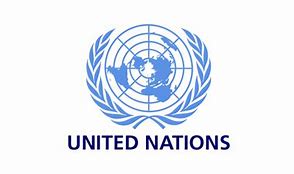
Like this:
Like Loading...
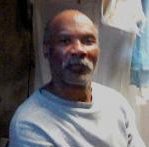 The sad news recently broke that Veteran Black Panther Romaine “Chip” Fitzgerald, perhaps the longest-held Political Prisoner in the United States, has passed on to the Ancestors. Another product of hard times, who had grown from a life on the streets to become a strong advocate and builder for Black Lives, has left us after 51 years in captivity, and those of us who have advocated for veterans of the Black Freedom Struggle are once again deflated by the news that we have failed another of our long-term activists.
The sad news recently broke that Veteran Black Panther Romaine “Chip” Fitzgerald, perhaps the longest-held Political Prisoner in the United States, has passed on to the Ancestors. Another product of hard times, who had grown from a life on the streets to become a strong advocate and builder for Black Lives, has left us after 51 years in captivity, and those of us who have advocated for veterans of the Black Freedom Struggle are once again deflated by the news that we have failed another of our long-term activists.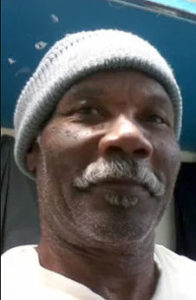 A former member of the Black Panther Party, Romaine ‘Chip’ Fitzgerald’s death cause is still shady after he reportedly passed away Monday (March 29, 2021).
A former member of the Black Panther Party, Romaine ‘Chip’ Fitzgerald’s death cause is still shady after he reportedly passed away Monday (March 29, 2021).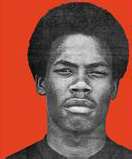

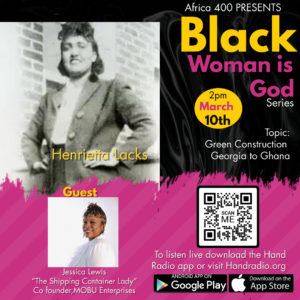
 Mobu Enterprises is restoring community education, advocating, and improving the environment with sustainable products and self-sustaining shipping container spaces and designs.
Mobu Enterprises is restoring community education, advocating, and improving the environment with sustainable products and self-sustaining shipping container spaces and designs. To date, Mobu Enterprises has pioneered many major domestic and international projects, including a co-educational school for the gifted in Ghana and several single-family home communities, and multi-family complexes in Macon, Georgia.
To date, Mobu Enterprises has pioneered many major domestic and international projects, including a co-educational school for the gifted in Ghana and several single-family home communities, and multi-family complexes in Macon, Georgia.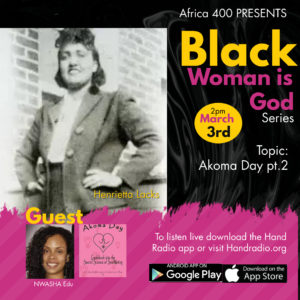
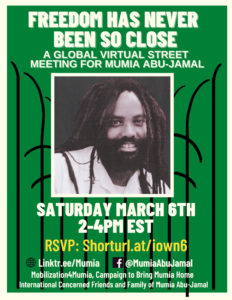
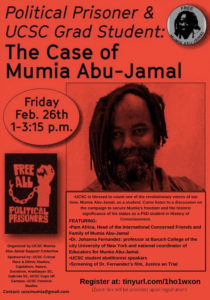 The event featured guest speakers Pam Africa and Johanna Fernandez, and a screening of Dr. Fernandez’s film, Justice On Trial. Students and community members spoke about Mumia’s graduate student status, the institutional lack of support Mumia is experiencing from his currently incarcerated position and how we can powerfully unite in the call for his immediate release. The event was sponsored by the UC Santa Cruz Mumia Abu-Jamal Support Collective out of the west coast. For more information about this program, contact them by email at
The event featured guest speakers Pam Africa and Johanna Fernandez, and a screening of Dr. Fernandez’s film, Justice On Trial. Students and community members spoke about Mumia’s graduate student status, the institutional lack of support Mumia is experiencing from his currently incarcerated position and how we can powerfully unite in the call for his immediate release. The event was sponsored by the UC Santa Cruz Mumia Abu-Jamal Support Collective out of the west coast. For more information about this program, contact them by email at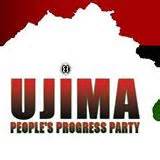 Hi Friend,
Hi Friend,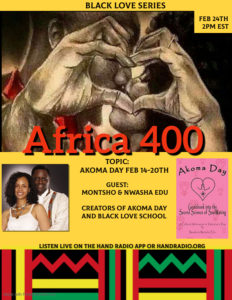
 The United Nations High Commission on Human Rights (UNOCHCR) continues its investigation into police brutality, violence and abuse. After its session at the UN Headquarters in New York in November 2015, in which testimony was presented from, among other witnesses, reporters and experts, Samaria Rice (mother of Tamir Rice), John Crawford II (father of John Crawford III), Alicia Garza (co-founder of Black Lives Matter) and several UN Special Rapporteurs from different parts of the world, the United Nations’ (UN) Economic and Social Council (ECOSOC) determined the need to continue to monitor the ongoing crisis of police brutality, violence and abuse directed specifically against Black People around the world. For more details of this session, see
The United Nations High Commission on Human Rights (UNOCHCR) continues its investigation into police brutality, violence and abuse. After its session at the UN Headquarters in New York in November 2015, in which testimony was presented from, among other witnesses, reporters and experts, Samaria Rice (mother of Tamir Rice), John Crawford II (father of John Crawford III), Alicia Garza (co-founder of Black Lives Matter) and several UN Special Rapporteurs from different parts of the world, the United Nations’ (UN) Economic and Social Council (ECOSOC) determined the need to continue to monitor the ongoing crisis of police brutality, violence and abuse directed specifically against Black People around the world. For more details of this session, see 